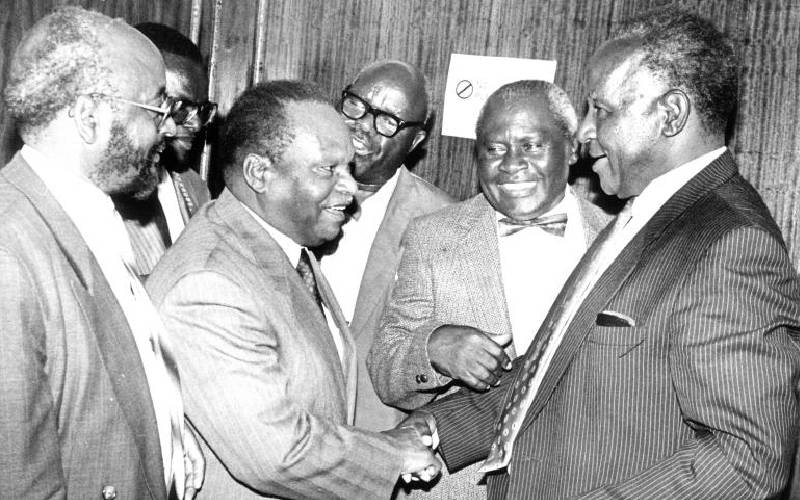×
The Standard e-Paper
Fearless, Trusted News

Kenneth Matiba welcomes Charles Rubia to Ford Asili after he defected from Kenya National Congress. Looking on is sec-gen Martin Shikuku, 1994. [File, Standard]
In a country where political parties rarely last more than a five-year election cycle, the pioneer party has withered many political storms, betrayal and treacherous plots to celebrate its thirtieth birthday.